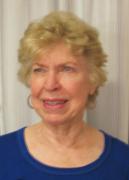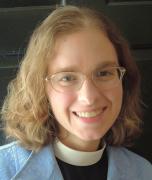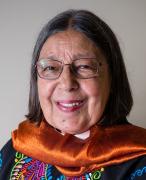Canon 1 of Title IV sets the theological context for the process: “By virtue of Baptism, all members of the Church are called to holiness of life and accountability to one another. The Church and each diocese shall support their members in their life in Christ and seek to resolve conflicts by promoting healing, repentance, forgiveness, restitution, justice, amendment of life, and reconciliation among all involved or affected. This Title applies to members of the clergy, who have by their vows at ordination accepted additional responsibilities and accountabilities for doctrine, discipline, worship and obedience.”
An overview
Under the canons, all matters will be reported to an intake officer (find contact information below). Matters might then be resolved through pastoral care, mediation, an agreement with the bishop, an investigation or any combination of these. An investigation may result in formal mediation, and, if necessary, a hearing.
The process allows for resolution through whatever means will move those affected toward justice, restitution, amendment of life, repentance, healing, forgiveness and reconciliation. This can include a variety of interventions for all involved and, if necessary, the suspension or removal of the cleric from ordained ministry.
Visit www.titleiv.org for comprehensive information about the clergy disciplinary process.
Find Title IV of the Episcopal Church Constitution and Canons here.
Clergy standards of conduct
Members of the clergy should:
• Maintain confidentiality
• Safeguard property and funds of the church
• Conform to the canons of the Episcopal Church and the rubrics of The Book of Common Prayer
• Abide by ordination vows
• Obtain consent of the bishop before engaging in secular employment
• Obtain consent of the bishop to be absent from the diocese for more than two years
Members of the clergy should not:
• Engage in sexual misconduct (includes sexual behavior with: a member of the congregation; employee; volunteer; person in high school; person under 18 years of age; person legally incompetent; someone with whom the clergy has ever had a pastoral relationship)
• Hold or teach any doctrine contrary to that held by the Episcopal Church
• Commit criminal acts
• Engage in dishonesty, fraud, deceit or misrepresentation
• Habitually neglect public worship, Holy Communion
• Engage in any conduct unbecoming a member of the clergy
Members of the clergy are required to report to an intake officer anything that may constitute an offense and to cooperate with the clergy disciplinary process.
Contacting the intake officers
Anyone may contact the diocesan intake officer of their choosing to report concerns about the behavior of a member of the clergy (priests, deacons, bishops). This initiates a process to hold clergy accountable for their behavior.
The intake officers will listen with respect; offer pastoral care and response; create a written report regarding the concern(s) presented; and answer questions about the process.
The intake officers for the Diocese of Massachusetts are:
Starr Anderson
starrkanderson@gmail.com
978-352-2147
Starr Anderson serves as a congregational consultant for the Diocese of Massachusetts, is a member of Consultants for Tomorrow's Church, Today and is the director of Christian education and adult Bible study at St. James's Church in Groveland. She is a former clinical administrator at Massachusetts General Hospital and served as lay vicar of All Saints' Church in West Newbury from 2007 to 2009.
The Rev. Thea Keith-Lucas
revthea@gmail.com
617-458-1253
The Rev. Thea Keith-Lucas serves at MIT as Chaplain to the Institute and Associate Dean of the Office of Religious, Spiritual and Ethical Life. She was ordained to the priesthood in 2006 and, prior to becoming Episcopal chaplain to MIT in 2013, served for five years as the rector of Calvary Church in Danvers, now part of All Saints' Episcopal Church of the North Shore.
The Rev. Ema Rosero-Nordalm
erosero@bu.edu
617-921-3490
Se habla español.
The Rev. Ema Rosero-Nordalm is a deacon and former Latina missioner for the Diocese of Massachusetts, dedicated to creating women's ministries and offering training in leadership and racial reconciliation. Her vocation prior to being ordained was as an educator. She taught Spanish language and culture at schools and universities in Boston before joining the faculty at the Foreign/Modern Languages Department at Boston University for 22 years.
Diocesan Disciplinary Board:
The Disciplinary Board is an elected body of members of the clergy and laity whose purpose is to carry out certain requirements of the church's canons concerning clergy discipline, including conference and hearing panels.
Contact the Office of the Canon to the Ordinary for the current roster (mlias@diomass.org).
#MeToo Task Force
Sexual misconduct in the church is committed by clergy and lay persons alike. To support healing and create a more respectful and honest culture, the #MeToo Task Force of the Diocese of Massachusetts has created an online form to provide an opportunity for those who have experienced, witnessed or perpetrated sexual harassment or abuse to share their story and, if they wish, to receive pastoral support. Visit our #MeToo page to access the form and find more information.



